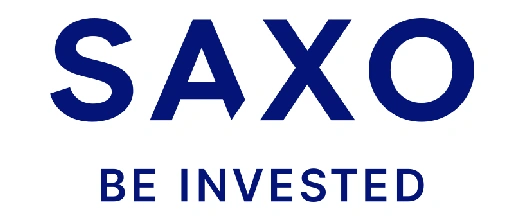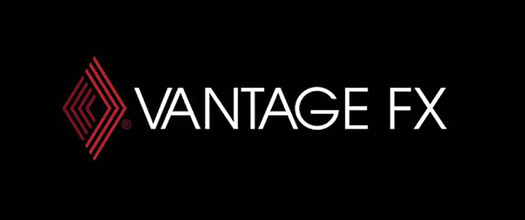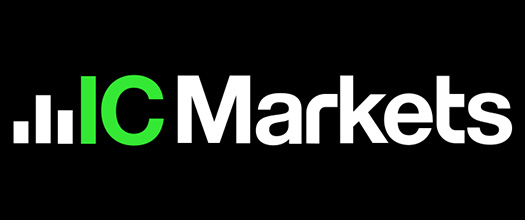- Jump to:
- Main features of the best Switzerland Forex brokers
- Forex Brokers in Switzerland Compared by Spread
- Account Types and Commissions
- Forex Legislation
- Financial Regulators
- Payment Methods
- Trading Software
- Mobile Trading
- FAQ
Our team of expert traders tested many regulated and trustworthy forex brokers that accept traders from Switzerland and compiled a toplist with the best among them. Each broker operating in Switzerland received a quality score based on several factors, including Trustpilot rating, regulation, fees and commissions, available trading platforms, customer service and more.
 Fusion Markets74-89% of retail CFD accounts lose money
Fusion Markets74-89% of retail CFD accounts lose money AxiThe vast majority of retail client accounts lose money
AxiThe vast majority of retail client accounts lose money FP Markets73.85% of retail investor accounts lose money
FP Markets73.85% of retail investor accounts lose money Pepperstone75.5% of retail investor accounts lose money
Pepperstone75.5% of retail investor accounts lose money Global Prime74-89% of retail CFD accounts lose money
Global Prime74-89% of retail CFD accounts lose money XM Group72.82% of retail investor accounts lose money
XM Group72.82% of retail investor accounts lose money
Below you can find a comprehensive comparison table of forex brokers for traders in Switzerland. We rank them based on several factors including: regulation, spreads and commissions, Trustpilot rating, trading instruments, trading platforms, deposit and withdrawal methods.
Main features of the best Switzerland Forex brokers
- Min Deposit$50Trading InstrumentsCFDs on Indices, Forex, Shares, Crypto, Futures, Commodities, Options, Interest Rates, Sectors, Bonds, Knock-out tradingRegulatorsASIC, FCA, DFSA, CFTC, FMA, FINMA, BaFin, MAS, JFSA, FSCA, BMA (Bermuda)Trading PlatformsMT4, L2 Dealer, ProRealTime, IG proprietary software, TradingViewSpread0.6 pips CFD trading; 0.165 pips DMA tradingLeverage1:30Deposit MethodsVisa, Mastercard, Bank Transfer, Wire Transfer, Visa Electron, Discover, PayPal, Apple Pay, BPAYWithdrawal MethodsVisa, Visa Electron, Mastercard, Discover, Bank Transfer70% of retail client accounts lose money
The Swiss entity of IG Group is authorized as a bank and securities dealer by FINMA, ranking it among the top-tier brokers for traders residing in Switzerland. Customers can choose between several advanced platforms, with MT4, TradingView, and ProRealTime at the forefront. Swiss traders can benefit from price fluctuations in 65+ CFD Forex markets, with leverage capped at 1:200. Minimum spreads start from as low as 0.6 pips, with no commissions charged additionally. Besides CFDs, customers with a minimum of CHF1,300 cash balance on their account can trade Forex on the professional platform for Direct Market Access. The latter involves variable commissions.
- Min Deposit$0 Classic$200,000 + Platinum $1,000,000 + VIPTrading InstrumentsStocks, ETFs, Bonds, Mutual funds, Crypto ETPs, Options, Futures, Forex, Forex options, Crypto FX, CFDs, CommoditiesRegulatorsFCA (No. 551422), FSA Denmark (No. 1149), MAS (No. 200601141M), ASIC (No. 32110128286), SFC Hong Kong (No. 1395901), FSA Japan (No. 0104-01-082810)Trading PlatformsSaxoTraderGO, SaxoTraderPRO, TradingView, SaxoInvestorSpread0.9 pips (Classic), 0.8 (Platinum), 0.7 pips (VIP)Leverage1:30Deposit MethodsVisa, Visa Electron, Mastercard, Maestro, Bank Transfer, Quick PaymentWithdrawal MethodsBank Transfer65% of retail investor accounts lose money
Saxo Bank is a highly regulated broker by several renowned financial authorities, including the FINMA in Switzerland, making it a perfect choice for Swiss traders. The company offers a diverse portfolio of 185 forex pairs, across majors, minors, and exotics. Three types of accounts are available based on the initial funding required from clients: Classic, Platinum, and VIP. USD/CHF spreads are as follows: 1.8 pips (Classic account), 1.7 pips (Platinum) and 1.5 pips (VIP). Saxo Bank also provides Forex options trading, with spreads as low as 3 pips on EUR/USD and access to 45 FX vanilla options.
- Min Deposit$1,000Trading InstrumentsForex, Commodities, Stock, Crypto, ETFs, Bonds, various CFDs, and moreRegulatorsFCA, MFSA, FINMA, DFSA, MAS, CySEC, FSC, FSCATrading PlatformsCFXD, MetaTrader 4, MetaTrader5SpreadFrom 0.0 pips (Elite), 0.6 pips (Prime), 1.3 pips (Standard)Leverage1:30Deposit MethodsVisa, Mastercard, Bank Transfer, Online BankingWithdrawal MethodsVisa, Mastercard, Bank Transfer, Online Banking61% of retail investor accounts lose money
Swissquote is a trusted financial services provider with robust licensing from several regulators, including the FINMA in Switzerland. Swiss traders can benefit from price fluctuations in 80+ crosses, including major, minor, and exotic currencies, with all trading fees incorporated into the spreads. Spreads vary, based on account type. Standard account spreads – 1.7 pips (EUR/USD), 2.0 pips (USD/CHF), and 2.0 pips (GBP/USD). Premium account spreads – 1.4 pips (EUR/USD), 1.8 pips (USD/CHF), and 1.7 pips (GBP/USD). Leverage options are flexible, reaching 1:100.
- Min Deposit$0Trading InstrumentsForex, Commodities, Indices, Crypto, US StocksRegulatorsASIC, FSA (Seychelles), VFSC (Vanuatu)Trading PlatformsMetaTrader4, MetaTrader5, cTrader, DupliTrade, Fusion+ Copy Trade, TradingViewSpread0.9 pips Classic; 0.0 pips ZeroLeverage1:30 (1:500 for forex and metals via VFSC)Deposit MethodsVisa, Mastercard, PayPal, Skrill, Neteller, Fasapay, Jeton Wallet, Perfect Money, Online Naira, Doku, Bitcoin, Ethereum, Litecoin, USDT, Tether, Ripple, bank wire, ZotaPay, VNPay, DuitNow, XPay, DragonPay, VAPay, FasaPay, AstroPay, PayID, Jetonbank, Sticpay, Interac, LuqaPay, Zotapay, MiFinityWithdrawal MethodsVisa, Mastercard, Bank Wire, Skrill, Neteller,Bitcoin, Ethereum, Litecoin, Tether, Ripple, MiFinity, Interac, PayPal, AstroPay, Jetonbank, DragonPay74-89% of retail CFD accounts lose money
Fusion Markets offers Swiss traders access to 90+ Forex CFD instruments via several cutting-edge platforms, including MT4, MT5, TradingView, and cTrader. The major currency pair USD/CHF is also available, with minimum spreads of 0.0 pips, average spreads of 0.37 pips plus a commission of $2.25 per side for Zero account members. Standard account members will pay no commission but a 0.9 mark-up will be added to the Zero spread. The broker does not impose minimum account requirements.
- Min Deposit$50 (AU$100)Trading InstrumentsForex CFDs, Shares CFDs, Metals CFDs, Commodities CFDs, Indices CFDs, Crypto CFDs, ETF CFDsRegulatorsASIC, CySEC, FSA (Seychelles), FSCA, FSA (St. Vincent and the Grenadines)Trading PlatformsMetaTrader4, MetaTrader5, WebTrader, IRESS, cTrader, TradingViewSpread1.0 pips Standard; 0.0 pips RawLeverage1:30Deposit MethodsVisa, Mastercard, Neteller, Bank Transfer, Skill, Sticpay, Fasapay, Virtual Pay, Perfect Money, Pagsmile, Dragonpay, Crypto, Apple Pay, Google Pay, Online Banking, Broker to Broker, PayPal, XPay, RapydWithdrawal MethodsVisa, Mastercard, Bank Wire, Neteller, Skrill, Paytrust88, PayPal73.85% of retail investor accounts lose money
FP Markets is a top-tier Forex and CFD broker, providing tight spreads and fast execution to Swiss traders across several advanced platforms, including MT4, MT5, WebTrader, and IRESS. The product offering spans 10,000+ instruments, including 70+ currency pairs. Standard account average spreads for the USD/CHF pair start from 1.5 pips, with all trading costs incorporated into the spread. Raw ECN account holders pay an average spread of 0.4 pips plus a $3 commission per side.
- Min Deposit$100Trading InstrumentsForex CFDs, Commodity CFDs, Shares CFD's, Index CFDs, Crypto CFD'sRegulatorsSCB (No. SIA-F220), ASIC (No.391441), CySEC (No. 246/14), FCA (No. 921296)Trading PlatformsMT4, MT5, WebTrader, TradingView, Capitalise.ai, FlashTraderSpread0.1 pips on Standard and TradingView Accounts; 0.0 pips Raw AccountsLeverage1:30Deposit MethodsVisa, PayPal, Mastercard, Wire Transfer, Neteller, Skrill, Tether, Bitcoin, BPAY, Dragonpay, Fasapay, Interac, Pix, UnionPayWithdrawal MethodsMastercard, Visa, PayPal, Skrill, Neteller, Bitcoin, Tether, Wire Transfers, BPAY, Fasapay, Pix, Interac, UnionPay76.09% of retail investor accounts lose money
Eightcap is a globally-recognized broker, regulated by several financial watchdogs, including the SCB, ASIC, FCA, and CySEC. Apart from English, its website is supported in German and French, a feature ideally suited to the needs of Swiss traders. Among 800+ CFD markets, they will find 40+ major, minor, and exotic pairs. The brand offers two account types, Standard and Raw. The Raw account offers tighter spreads, combined with a $3.5 commission per side. Standard account holders trade with no commissions and slightly wider spreads starting from 1.0 pips. The minimum deposit requirement for both account types is $100 and trade sizes vary from 0.01 to 100 lots.
- Min Deposit$50Trading InstrumentsForex, Indices, Commodities, Shares CFD, ETFs, BondsRegulatorsFCA (license no. FRN: 590299), VFSC (reg. No. 700271), ASIC (license no. no. 428901), FSCA (license no. 51268), CIMA (no. 1383491)Trading PlatformsMetaTrader 4, MetaTrader 5, ProTrader, TradingView, Copy TradingSpread1.1 pips on Standard Account; 0.0 pips on Raw, Cent, and Pro AccountsLeverage1:30Deposit MethodsVisa, Mastercard, Union Pay, Boleto, Bank Wire, Skrill, Neteller, Crypto, POLi, FasaPay, Perfect Money, BPay, Pagsmile, AstroPay, JCBWithdrawal MethodsVisa, Mastercard, Union Pay, Bank Wire, Skrill, Neteller, Crypto, AstroPay, Perfect Money, JCB
Vantage Markets operates in multiple jurisdictions, under licenses from the CIMA, FCA, and FSCA, among other regulators. The broker welcomes traders from Switzerland too, providing access to advanced platforms, including MT4, MT5, TradingView, ProTrader, and the Vantage app. The broker offers three account types – Raw ECN, Pro ECN, and Standard STP, with different pricing mechanisms. The first two offer spreads from 0.0 pips plus a commission of $1.50 (Pro ECN) and $3.00 (Raw ECN). Standard STP accounts come with no commission and slightly wider spreads from 1.0 pip.
- Min Deposit$200Trading InstrumentsCFDs on Forex, Commodities, Index, Bond, Cryptocurrencies, Stock, FuturesRegulatorsFSA (Seychelles), CySEC, ASICTrading PlatformsMetaTrader4, MetaTrader5, cTrader, ZuluTradeSpread0.8 pips Standard, 0.0 pips Raw AccountsLeverage1:30Deposit MethodsBank transfer, Visa, Mastercard, PayPal, Skrill, Neteller, Visa Direct, SafeCharge, Transact365, eCommPay, CardPay, Bpay, FasaPay, Poli, RapidPay, Klarna, NuveiWithdrawal MethodsBank transfer, Visa, Mastercard, PayPal, Skrill, Neteller, Visa Direct, SafeCharge, Transact365, eCommPay, FasaPay, Poli, RapidPay, Klarna70.64% of retail investor accounts lose money
IC Markets operates under a license by the Financial Services Authority of Seychelles (FSA), complying with strict requirements for customers’ funds.
The broker has integrated superior trading platforms, including MT4, MT5, cTrader, and TradingView. Customers can pick between Standard and Raw accounts, depending on the way they want to manage their trading costs. Raw accounts come with lower average spreads (0.34 pips for the USD/CHF pair) and a commission of $3.5 for MetaTrader and $3 for cTrader charged per lot traded per side. Commissions are waived for Standard accounts, in exchange for slightly wider spreads (1.14 pips for USD/CHF). - Min Deposit$0 (Standard)$2,000 (Prime)$20,000 (Institutional)Trading InstrumentsForex, Commodities, Futures, Indices, Stocks, CryptocurrenciesRegulatorsSFSA (No. SD045), FMA (No. FSP403326), FSATrading PlatformsMT4, MT5, TradingView, cTrader, MT WebTrader, BlackBull Shares, BlackBull CopyTrader, BlackBull Trade, BlackBull Invest, ZuluTradeSpread0.8 pips Standard; 0.1 pips Prime; 0.0 pips InstitutionalLeverage1:500Deposit MethodsVisa, Mastercard, Neteller, Airtm, Skrill, Bank Transfer, HexoPay, American Express, POLi, Payment Asia, Help2Pay, FXPay, Fasapay, China Union Pay, Boleto, AstroPay, Beeteller, Bitcoin, Ethereum, Tether, Ripple, Litecoin, Bitcoin Cash, Chainlink, USD Coin, StellarWithdrawal MethodsVisa, Mastercard, Bank Transfer, Airtm, Skrill, Neteller, American Express, POLi, HexoPay, Payment Asia, Help2Pay, FXPay, China Union Pay, Boleto, Fasapay, Beeteller, AstroPay, Bitcoin, Litecoin, Bitcoin Cash, Tether, Ripple, Stellar, Chainlink, Ethereum, USD Coin
BlackBull Markets is another excellent choice for Swiss traders, offering lightning-fast execution speed, $0 minimum deposit requirements, and 26,000+ tradable instruments, including 70+ currency pairs. In addition to the advanced third-party trading platforms, such as TradingView, MT4, MT5, and cTrader, the broker offers a proprietary product, BlackBull copyTrader. 60+ Forex pairs are available for trading, with live spreads starting from 0.9 pips (USD/CHF), 3.4 pips (EUR/CHF), and 3.4 pips (GBP/CHF). Three account types are available: ECN Standard, ECN Prime, and ECN Institutional. There is no commission charged on the first type, whereas the other two involve commissions of $6.00 and $4.00 per lot, respectively. Spreads start from 0.8 pips for Standard accounts, 0.1 pips for Prime accounts, and 0.0 for institutional accounts.
Forex Brokers in Switzerland Compared by Spread
| Broker | EUR/USD | USD/JPY | GBP/USD | USD/CHF | AUD/USD | EUR/GBP | USD/CAD |
|---|---|---|---|---|---|---|---|
| 1. Fusion Markets | 0.07 | 0.13 | 1.01 | 0.37 | 0.90 | 0.23 | 0.14 |
| 2. BlackBull Markets | 0.1 | 0.2 | 0.4 | 0.9 | 0.4 | 0.7 | 0.5 |
| 3. Vantage FX | 0.2 | 0.5 | 0.4 | 0.6 | 0.5 | 0.3 | 0.3 |
| 4. IC Markets | 0.8 | 0.8 | 0.8 | 0.8 | 0.8 |
| 0.8 |
| 5. IG | 0.85 | 0.9 | 1.40 | 1.95 | 1.01 | 0.9 | 2.1 |
| 6. Saxo Bank | 0.9 | 1.2 | 1 | 0.7 | 0.8 | ||
| 7. Swissquote | 1.0 | 0.6 | 1.0 | 1.2 | 1.0 | 1.2 | 1.2 |
| 8. Eightcap | 1.00 (min) | 1.1 | 1 | 1.4 | 1.2 | 1 | 1.2 |
| 9. FP Markets | 1.1 | 0.30 | 1.2 | 1.8 | 1.2 | 0.20 | 1.5 |
Account Types and Commissions
| Broker | Min Deposit | Account Types | Commission per Lot | Trustpilot Rating |
|---|---|---|---|---|
| 1. Fusion Markets | $0 | Zero, Classic, Islamic, Demo, Professional | $0 Classic Account, $4.50 round turn on Zero Account | 4.9 |
| 2. FP Markets | $50 (AU$100) | Standard, Raw, Demo, Professional, Islamic | $0 Standard Account; $6 round turn on Pro Account | 4.7 |
| 3. IC Markets | $200 | Raw Spread cTrader, Raw Spread MT, Standard MT | $0 Standard MT; $6 round turn on Raw cTrader; $7 round turn on Raw MT | 4.5 |
| 4. BlackBull Markets | $0 (Standard)$2,000 (Prime)$20,000 (Institutional) | ECN Standard, ECN Prime, ECN Institutional | $0 Standard; $6 per lot Prime; $4 per lot Institutional | 4.5 |
| 5. Eightcap | $100 | Standard, Raw, TradingView Account | $0 on Standard and TradingView Accounts; $7 round turn on Raw Accounts | 4.2 |
| 6. Saxo Bank | $0 Classic$200,000 + Platinum $1,000,000 + VIP | Classic, Platinum, VIP | $3 per lot | 3.8 |
| 7. Swissquote | $1,000 | Standard Account, Premium Account, Prime Account |
| 3.8 |
| 8. IG | $50 | Spread Betting Account, CFD Trading Account, Limited Risk Account, Islamic, Professional, Demo, Options and Share Dealing Accounts* | $0 | 3.7 |
| 9. Vantage FX | $50 | Standard, Cent, Pro, Raw | $3 per side on Raw; $1.50 per side on Pro | 3.5 |
Thanks to its highly developed service and finance sectors, Switzerland has one of the most stable and competitive economies in the world. Known for its powerful banks, the country also has a strong industry and is among the leading nations for trade and technological innovation. The Swiss foreign exchange market is thriving, while the national currency, the franc, is one of the most traded currencies in the world.
Switzerland, officially the Swiss Confederation, is a fairly small country located primarily in the Alps and it is home to more than 8.5 million people. In 2016, the federal state reported the highest average wealth per adult, at $561,900. But the Swiss chocolate, the famous Swiss neutrality, secure banks, and high living standards are not the most interesting things about this country. Officially, Switzerland has no capital city, yet it is home to four linguistic regions (German, Italian, French, and Romansh). Switzerland is also the world’s leading watch exporter. Oddly, it exports more coffee than chocolate.
Despite its huge financial sector, reputable exchanges and good investment climate, there are not many Swiss-based Forex brokers. The reason for this is a bit complicated and will be explained below.
Swiss Forex Legislation
To better understand the foreign exchange market in Switzerland – at least in terms of legislation and regulation, we need to take into consideration a few curious facts about this nation. It is not a part of the European Union, the European Economic Area or the Eurozone (it is a member of the European Free Trade Association instead) but it participates in the Schengen Area and the European Single Market. This means that it does not fall under the jurisdiction of the European Securities and Markets Authority (ESMA), the main EU financial regulatory agency.
In 2018, ESMA introduced draconian measures to improve the protection of retail brokers. This included tiered leverage for different instruments (maximum of 30:1 only for CFDs on major FX pairs) and a ban on the bonuses and other incentives offered by brokers for trading CFDs. In addition, the authority prohibited the marketing, distribution, and sale of binary options.
Meanwhile, Swiss brokers do not face these tough restrictions and the country was expected to benefit from the new, EU-wide rules. Many brokers decided to close their EU-based offices and relocate to other jurisdictions. Switzerland, however, was not a preferred choice for them mainly due to the current requirements to operate as a Forex or CFD trading broker in the country.
The main pieces of legislation that control and regulate the financial markets in the country include the Banking Act, the Financial Institutions Act, and the Federal Act on Financial Market Infrastructures and Market Conduct in Securities and Derivatives Trading. To offer trading services in Switzerland, brokers need to obtain a banking license. This status, however, is associated with complying with the toughest regulation regime in the financial sector.
In Switzerland, as well as around the world, banks need to meet the highest standards in terms of security, financial soundness, anti-money laundering policies, etc. To receive a banking license in the country, firms need to prove they are reliable, solvent and serious organizations. They are required to have a minimum capital of CHF20 million. In comparison, the requirement for brokerage firms in most European jurisdictions is only €100,000. According to the local regulations, Swiss traders are protected up to CHF100,000.
In addition, brokers need to provide direct market access to their clients – price manipulation, platform tampering, and other fraudulent tactics are strictly forbidden. The firms are considered to be liquidity providers since they are capable of absorbing most of the traded volumes. All this is, of course, extremely demanding, which is why only a handful of firms operate in the market.
Swiss Financial Regulators
The main financial regulator in Switzerland is the Financial Market Supervisory Authority FINMA (FINMA), a government agency that is institutionally, functionally and financially independent from the Federal Department of Finance. Based in Bern, the de facto capital of the country, it reports directly to the Swiss Parliament.
FINMA was established in 2007 after the adoption of the Federal Act on the Swiss Financial Market Supervisory Authority, which merged several institutions into one agency – the Federal Office of Private Insurance (FOPI), the Swiss Federal Banking Commission, and the Anti-Money Laundering Control Authority. FINMA is the supervisory authority over banks, insurance companies, securities exchanges and other financial market infrastructures, fund management companies, collective investment schemes, mortgage issuance banks, financial intermediaries, and securities firms (formerly securities dealers).
It issues all three types of licenses – banking licenses, fintech licenses, and securities firms licenses. It also initiates investigations and has the authority to suspend and revoke licenses. However, FINMA cannot issue penalties for any alleged misconduct – the Swiss Parliament the right to do that. Overall, the agency is responsible for licensing, supervision, regulation and partially enforcement of the current rules and ts primary objective is to protect the interests of investors and creditors while ensuring the proper function of financial markets.
Switzerland Forex Payment Methods
Although Switzerland is extremely economically advanced and technologically oriented, cash remains king when it comes to everyday payments. But since nowadays people are doing more things online than ever, online payments have become very popular – credit and debit cards are Swiss citizens’ favorites, followed by digital wallets (on desktops and mobiles). In addition, most people in the country have an account with at least one bank.
It is hardly a surprise, then, that most Forex brokers available to Swiss traders offer these several payment options. Clients can make deposit money instantly into their trading accounts using a credit or debit card – Visa, Visa Electron, Mastercard, and Maestro are usually offered. Typically, these cards have convenient limits (low minimum and high maximum limits), although this varies, depending on the card-issuing institution. Withdrawals of funds take 1 to 3 working days and fees are often covered by the brokers.
Another payment method supported by practically every Swiss broker is bank transfer. Most firms allow their clients to deposit or withdraw funds via SWIFT and SEPA transfers. They are considered secure and reliable ways to transfer money but they are also slower than credit cards, for instance, and they come with higher fees.
One of the most popular payment methods among Swiss Forex traders, however, is using digital wallets. Multiple e-wallets are supported in the country and by online brokers, including Skrill, Neteller, and PayPal. Additionally, some brokerage firms also support payments in cryptocurrencies such as Bitcoin or Litecoin, although they are not very popular in Switzerland.
Popular Trading Software in Switzerland
Swiss traders use the same types of software to access the foreign exchange market as their peers from all around the world. The choice of trading software is essential since every platform is designed for a particular type of trading and financial instruments – some are great for trading Forex pairs, while others are mostly used for buying and selling stock. Of course, every type of software also comes with different functions, features, and customization options. Additionally, some platforms offer more complex features that would benefit professional traders only.
Many other aspects should be taken into account when choosing a Forex broker and trading system. The vast majority of online Forex brokers offer their clients access to the same trading software. There are a handful of software platforms that are extremely popular and easy to use, which is why they have become an industry standard in the past few years. For instance, MetaTrader 4, a widely used platform for Forex retail trading, is suitable to almost anyone interested in the foreign exchange market. It is, however, mostly oriented towards beginner-level traders and those who still need access to educational tools, copy trading features, etc.
In fact, nearly everyone who trades on the Forex market uses MT4, as it is also known – individually or paired with other types of software for analysis and backtesting. Another platform by the same developer, MetaTrader 5, comes with access to more financial instruments, more advanced trading features, and a bit improved performance. Both types, however, are available for desktop and laptop computers, as well as for iOS and Android devices. Still, there are many more software platforms that can be used for trading Forex pairs.
One of them is cTrader, developed by Cyprus-based company Spotware Systems. The platform has a clean design and user interface and a wide range of technical indicators, as well as multiple features for professional trading. It offers fast execution, algorithmic trading, plenty of drawing tools, copy trading, and many more. In addition to these third-party platforms, there is also a wide variety of proprietary software, designed for one specific Forex broker. Such systems, of course, vary from one broker to the next and are usually quite different from each other.
Mobile Trading in Switzerland
The explosion of mobile technologies in the past few years has made it possible for Forex traders to access their accounts directly from their phones and tablets. Devices and subscription plans have become more affordable than ever, while brokers’native apps transformed into convenient, intuitive, and well-performing applications that are just as functional as desktop-based trading platforms.
Just like in the rest of Europe, Forex traders in Switzerland now prefer to open their accounts on the go. But while a couple of years ago, they used mobile apps to simply stay up-to-date with economic news and market trends, they are now using their phones to actually buy and sell. They do not even need to have an account with a broker to download its trading application.
Once they install the app from the App Store or Google Play, they can sign up and opt for a demo or a live account. Novices on the Forex market are, of course, advised to always start with a demo account but to be able to trade with real money, they will need to register a live account and verify it. Once they do that, they will be able to benefit from all functionalities and features of the trading platform directly from their iOS or Android device.












